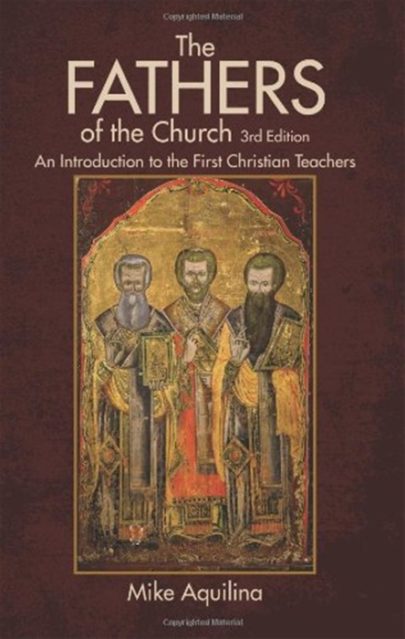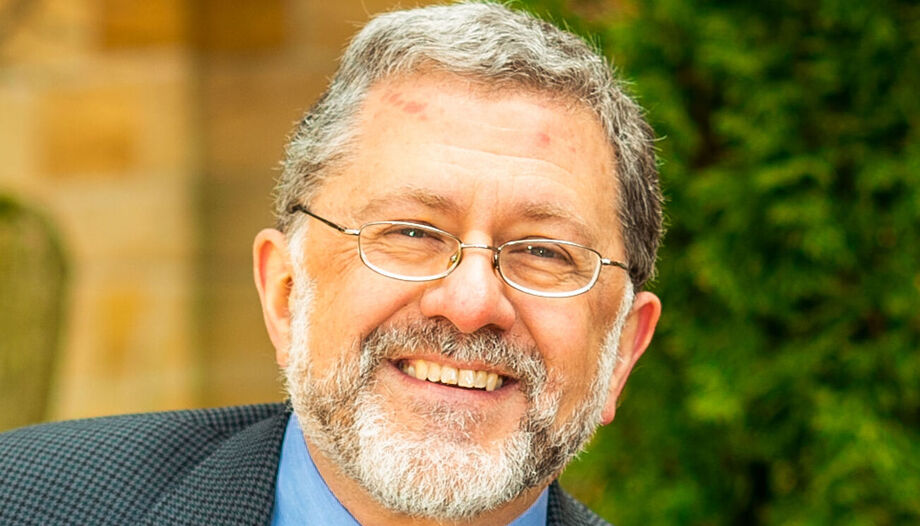Mike Aquilina is one of the most prolific authors on patristics in the United States. His works have helped hundreds of people to learn more about the history of Catholicism and to lose their fear of reading the Fathers of the Church. Through his work he wants to make accessible to everyone this knowledge that, for many, may seem convoluted at first.
Aquilina is convinced that the great problems that arose at the beginning of the Church are the same as those we have today, or at least are similar enough to try to find some help in the texts of the early Christians. Therefore, in this interview he draws some lines to connect the teachings of the Fathers of the Church with the present day, bringing the first century closer to the 21st century.
What current elements can we find in the teachings of the Fathers of the Church? What teachings from that time could we also apply today?
– Human nature remains constant. Of course we won't find electric toasters or wifi in the writings of the fourth century. But we want the same things people wanted back then. We sin the same sins. Human society operates according to the same patterns. The Fathers speak to concerns that are unchanging.
Why is it important that we do not lose sight of the roots of the Church?
– The ancient sources steady us. They help us to understand what can change and what must remain constant. We see that Athanasius was willing to stand alone in defense of the Nicene faith, which he believed was a clear articulation of the apostolic faith. He was willing to suffer the consequences, because true doctrine is worth it. But, remember, he was also instrumental in working out a new development — the use of philosophical language to illuminate the life of the Trinity.
There are many voices calling for an internal renewal of the Church, how can we respond to today's challenges without losing sight of the Catholic essence?
– Christians in every generation want renewal. They want reform of the liturgy. They want spiritual refreshment. This is not a peculiarity of our time. People wanted the same things in 350 A.D. and 750 A.D. and 1250 A.D.
The great minds of the past two centuries taught consistently that renewal will come from a new encounter with the sources of Christian tradition: Scripture, liturgy, and the Fathers. This was the desire of Newman, Gueranger, Danielou, De Lubac, Quasten. It was one of the animating ideas at the Second Vatican Council.
You have a book talking about the history of the papacy. Today many criticize Pope Francis, however, you claim that “the story of the papacy is a story of triumph”. What does this mean? How do you apply it to Pope Francis?
– It's not my place to judge Pope Francis. I see no provision for that in canon law. I see no need to add my own voice to the thousands who fill social media with their reckless pronouncements. I may have opinions about one or another of the Holy Father's actions. I may have an opinion about his personal style. But I've read enough history to know that my opinions could be very wrong. And good people have done real damage down the centuries by opposing God's vicar. Yes, there's St. Catherine of Siena, but I cannot claim any of her credentials for myself!
For Westerners, both the Holy Land and the time of Christ are very far away. What can they do to learn more about it? What do you think this knowledge can contribute to their life as Catholics?
– Read history. Newman became increasingly Catholic as he went deeper in his studies of history. So have thousands of people after him. I write my books in order to help people get started. My hope is that they'll go on from there, as they're able, and read books that are more challenging than mine.
I've been writing for a long time now, and I've received thanks from young people with doctorates who say they first encountered the Fathers in one of my books. That's gratifying. Very few people will go that far. But people should get started and see how far their interest and passion take them.

If someone would like to begin to learn about the Fathers of the Church, where would you recommend they start?
– For an introduction, I'd recommend my own book The Fathers of the Church. Then read the works of the Apostolic Fathers — the first generation of authors after the Apostles. My favorite English translation of the Apostolic Fathers is Kenneth Howell's, published by the Coming Home Network.
What can we learn from the evangelization carried out by the early Christians to apply it today?
– Everything. The Church grew from a few thousand in the first century to half the population of the Roman world by the middle of the fourth century. They accomplished all that growth when the practice of the faith was illegal. It was a crime punished by torture and death. The early Christians had no access to media or the public square. Yet they succeeded where we today are failing — in spite of our money and television networks and numberless apostolates. I believe their secret was friendship. They extended the love of charity to the family next door and the merchants in the next market stall. It was as simple as that.
The Church revolutionized the world with its appearance, and has done so several times throughout history. What do you think have been its main contributions?
– Again, everything. The ideas we all love best — human dignity, the rights of women, human equality — these were introduced into the civilizational bloodstream by Christianity. The institutions we consider foundational — the hospital, the university — these were invented by Christians.
In history we see the will of the Father worked out by the disciples of Jesus through the power of the Holy Spirit. In the fifth century St. Jerome said that "Ignorance of Scripture is ignorance of Christ," and that's certainly true. I'd add, however, that ignorance of history is ignorance of the Holy Spirit. It's ignorance of all that God has done for us in the lives of the saints through the ages.
There are those who think that the Church is in crisis and has lost its importance. Has this happened in any other historical moment? What can we learn from those occasions?
– Yes, the Church on earth rises and falls, comes and goes. Think of the seven churches mentioned in the Book of Revelation. They've all "lost their lampstand." They've dwindled to insignificance. Think of the bloody wars of the last century. So many were fought in Christian countries. Think of Nazi Germany, Communist Russia, Spain during the Civil War. At times the Church looked like it was vanquished, and then it emerged again.
Chesterton said: "Christianity has died many times and risen again; for it had a god who knew the way out of the grave." History shows that principle to be true. History gives us reasons to hope.
For you, the small testimonies of the first Christians are very important, things like the paintings in the catacombs or the vessels they left behind. What lessons about our faith can we find in these details?
– We see what ordinary people loved. We see what they prized. Not long ago in Egypt, archeologists unearthed a cloth with a piece of paper sewn up inside. Someone in the third or fourth century had worn it like scapular around his neck. And what was on that paper? The Gospel's account of Jesus' institution of the Eucharist. It was written on the back of a receipt.
In Sudan recently archeologists turned up the mummified body of a young woman who had the Archangel Michael tattooed on her leg. She knew that he would be her defender in battle. I love these little details the earth has preserved for us. They show us the ancient Church as it was, and it's a Church modern Catholics can recognize as their own.








